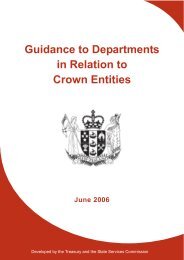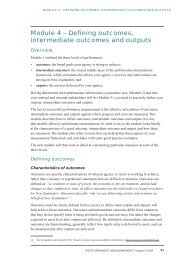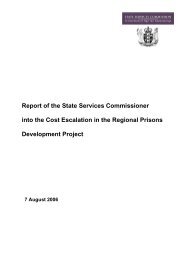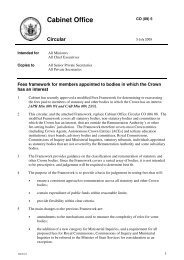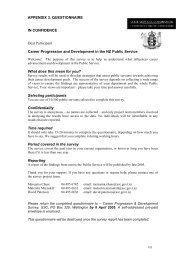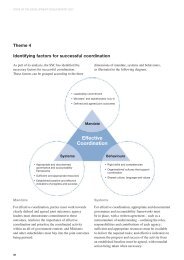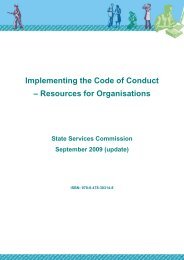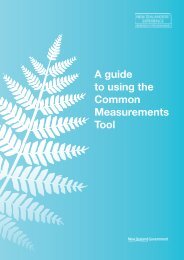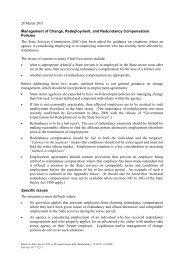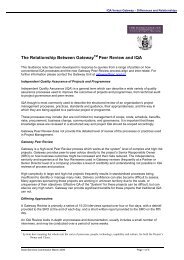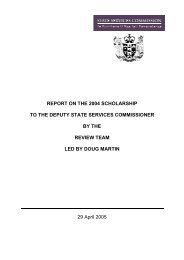Better Public Services Advisory Group Report - November 2011
Better Public Services Advisory Group Report - November 2011
Better Public Services Advisory Group Report - November 2011
Create successful ePaper yourself
Turn your PDF publications into a flip-book with our unique Google optimized e-Paper software.
3.6 Should Ministers agree with this approach, and then agree a set of priority results, the<br />
onus would be on the state services to demonstrate its commitment to achieving them<br />
and its collective impact in doing so. The <strong>Advisory</strong> <strong>Group</strong> suggests that lead departments<br />
be required to prepare sector-wide (ie, multi-agency) Result Action Plans for each of the<br />
Government’s priority results. Those plans would identify the resources that need to be<br />
corralled behind the scenes and might propose new organisational arrangements as<br />
necessary to ensure traction. The <strong>Advisory</strong> <strong>Group</strong> judges that these plans are likely to be<br />
iterative, and should include clear expectations for – and evaluation of – manageable<br />
performance change.<br />
3.7 The State <strong>Services</strong> Commission (lead), the Treasury and the Department of the Prime<br />
Minister and Cabinet would then work alongside clearly mandated sector lead chief<br />
executives to ensure Result Action Plans were driven forward, and were not constrained<br />
by status quo restraints (see Chapter 5 on leadership). Ministerial alignment over, and<br />
support for, the agreed priority results will also be a necessary component in driving<br />
change in the state sector, and in giving effect to achievement of the results.<br />
3.8 Information on the agreed results, and progress towards them, should be made public as<br />
New Zealanders will expect to see, and are entitled to judge, evidence of progress. Other<br />
jurisdictions (Scotland, Singapore, parts of the US) already do this 19 . The Central<br />
Agencies would have an obligation to advise Ministers on whether the plans are working<br />
and, if not, what needs to be changed.<br />
3.9 The <strong>Advisory</strong> <strong>Group</strong> considers that the potential impact of identifying key results for<br />
government action could be significant over the long term, allowing traction to be gained<br />
on some of the long-standing national challenges: a more prosperous country; more<br />
highly skilled people; less crime; fewer of our children being abused. And, with the costs<br />
of duplication of effort and lower priority activity stripped out.<br />
3.10 To secure these gains, the <strong>Advisory</strong> <strong>Group</strong> suggests that a start be made in places where<br />
the potential gains are high, and/or where there is already momentum for collaboration.<br />
Trying to do everything at once will stymie progress. Arrangements should be tailored to<br />
fit the problem: so, club-up around a complex issue (eg, coastal environment) or activity<br />
(eg, interactions with business), and avoid trying to make all activity fit (some government<br />
activity is not about results and/or will not fit neatly into a sector).<br />
19 For instance: http://www.scotland.gov.uk/About/scotPerforms/indicators.<br />
25



